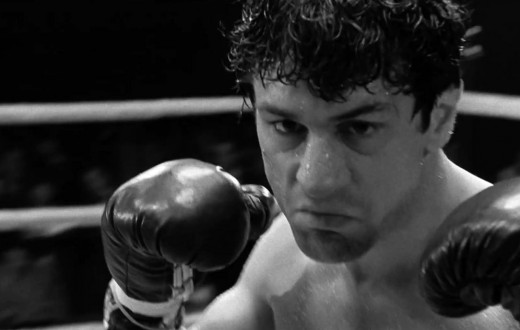Over the past couple of weeks, we gave you the Introduction Guide for Parents of Child Actors Part I and Part II. Now we bring you the concluding part of this series, which discusses how to cultivate a healthy mindset and how to handle rejections.
A Guide For Parents of Child Actors is a resource designed specifically for the parents and guardians of young performers who are pursuing a career in the entertainment industry. It provides valuable information on the challenges and opportunities that come with raising a child actor.
Foster a Positive Attitude
As a child actor, developing and maintaining a positive attitude is key for success. Many young actors struggle to stay optimistic throughout the highs and lows of their careers. It’s important to remember that having a positive attitude can be instrumental in helping create long-term success.
Definitely remain open minded while auditioning. By displaying enthusiasm and eagerness in the audition room, you can show that you’re excited about working on the project.
Fostering a positive attitude begins with setting realistic expectations and understanding that not every job will be an amazing opportunity; some projects just need to pay the bills. We’ll get more into bills and what not in a future article, so be sure to follow DirectSubmit NYCastings to get updates.
Child actors are often seen as role models for young people, so it’s important to maintain a certain level of positivity. It can be difficult to remain upbeat when constantly surrounded by an entertainment industry that is known to be competitive and cut-throat. However, with the right tools and support system, child actors can stay optimistic during their journey to stardom.
One key element of keeping a good outlook is having balance in life. While pursuing success in the industry, child actors should take time away from their careers and enjoy activities that help them relax and have fun. Having hobbies or participating in volunteer work are great ways to keep perspective on what really matters in life. Another important factor is surrounding themselves with positive people who will encourage them through tough times and celebrate their successes with them.
Balance is easier said than done, of course. Jenna Ortega, who plays Wednesday Addams in the Tim Burton-directed Netflix series, Wednesday, told the press that her schedule for the show was so grueling, she would often cry when calling her dad. As soon as she had a free day, production would fill it up with a cello lesson or something else needed for the show. Jenna had no balance. It’s hard to keep a positive attitude when you’re being pulled in different directions.
So you see, it can be especially difficult for young performers to stay optimistic when encountered with long hours, intense pressure and potential rejections.
There are ways that child actors can learn how to maintain a positive attitude despite these challenges…
– Child actors should understand that the entertainment industry is highly competitive and setbacks are inevitable. Learning to deal with disappointments is an important part of professional development and resilience building — skills that will serve them well throughout life.
– When setbacks occur (and they will), take a step back, get some perspective on what happened and use it as an opportunity to grow. This could mean talking through your feelings with someone you trust or taking some time away from the craft while still making sure you keep up with your studies or other hobbies.
Child actors should recognize that opportunities come along with being in the spotlight. Some include travel, eating at fancy restaurants and possibly high earnings. If you help your child keep these things in mind, it may produce a positive attitude.
Ah. This is not an easy thing to do, yet actors everywhere are trained to handle rejection. Prepare your child from the get-go that they may not get every job.
Rejection is a natural part of life, especially when it comes to acting. As a parent of a child actor, you have an important role in preparing them for disappointment and helping them cope with it. Knowing how to help your child handle rejection before they experience it can be the difference between success and failure in their career.
When a child actor doesn’t get the role, it can be hard to break the news. Be honest and supportive as your child processes this disappointment. Parents should ensure their words are both encouraging and factual in order to help their children understand what happened and how they can move forward.
It’s essential to focus on reassuring the young performer that even though they didn’t get the job, their efforts were appreciated by casting directors. This will help them remain confident in their abilities moving forward. Parents should also make sure that no blame or guilt is placed on the child for not getting the part; this may lead to feelings of inadequacy or self-doubt.
Although difficult, there are many ways you can prepare your child actor for rejection. The key thing is communication; talk to your child about what kind of rejections they may face and how you expect them to respond. It’s also helpful to give examples from other actors who have experienced rejection yet still achieved success. Encourage your child by reminding them that the right opportunity will come along eventually if they stay positive and continue working hard towards their goal.
Here’s a simple explanation you can use:
“Roles are sometimes not very descriptive because the casting director and others in charge like to see a variety of different actors. They may decide to go with a blonde instead of brunette, or they may choose a totally different ethnicity. You never know what casting is really looking for, so you go in to the audition, do your best and if you get the part, great! If not, we move onto the next audition.”
Parents / guardians – notice how I used the word “we” in the last sentence. By using “we”, you’re showing your child that you support them and that you’re taking on the world together.
You should be mindful of the challenges that may come with having a child actor in the family. It’s also imperative to stay involved, support your child and remember to take breaks. It can also be helpful to talk openly with your child about their experiences on set and the changes they’re going through. Remain aware of any potential exploitation or abuse in the industry and make sure that your child’s best interests are always at heart.








